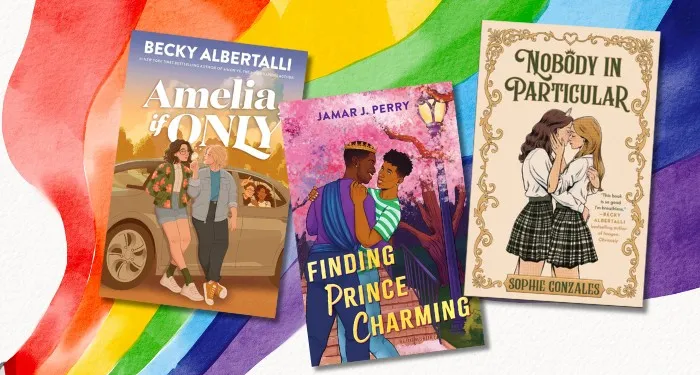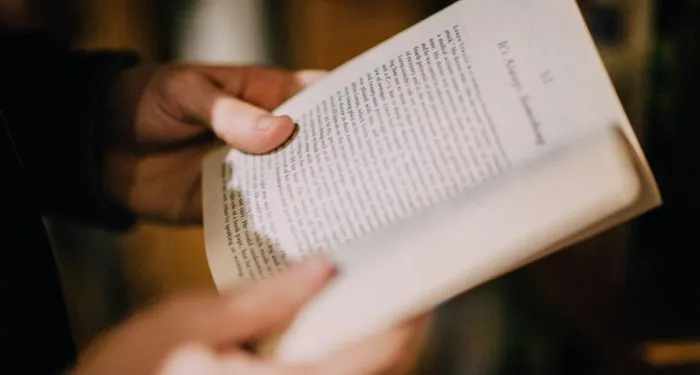New translations of Homer are bound to revive millennia-old questions of authorship and ancient diction. As Daniel Mendelsohn writes in the introduction to his rendition of the Odyssey, published this April by the University of Chicago Press, the alluring paradox of the epic is that contemporary readers can come to it “with a bracing sense of déjà vu: we feel we know these narratives, we have met these characters, we recognize these themes. Yet the epic of Odysseus’s return is, in many ways, as unfathomably strange to us as the one-eyed giant Cyclops was to its hero.”
Mendelsohn, a classicist at Bard College and the editor-at-large for this paper—not to mention a frequent contributor—has been teaching and writing about the Odyssey for decades. In 2017 his father joined his class, and the experience of that semester, and of going together on a cruise around the Mediterranean that recreated Odysseus’s journey, is the subject of Mendelsohn’s memoir An Odyssey: A Father, a Son and an Epic. We spoke last week about the craft of translation, Homer as romantic comedy, and rereading the Odyssey.
Lauren Kane: Tell us how you came to the project of translating the Odyssey.
Daniel Mendelsohn: I published my memoir about reading the Odyssey with my dad in the fall of 2017, and for the purposes of that book I had already translated a number of short, small passages. It happened that the executive editor of the University of Chicago Press at the time, Susan Bielstein, had read that book and liked the translations. Although Chicago runs the most prestigious series of classical translations in this country, they didn’t have an Odyssey on their list to stand beside Richmond Lattimore’s Iliad, probably the most distinguished American translation of any classic. (Lattimore was supposed to do an Odyssey for them back in the Sixties, but his editor moved to a different publisher, and he followed his editor.)
So when Chicago invited me to do it, I had been thinking a lot about the Odyssey, obviously. Susan caught me at the right moment. (Well, when she called to ask if I would consider taking on the whole of the Odyssey, I actually was washing my kitchen floor on my hands and knees on a cold January night.) It was the right confluence of circumstances. I’ve often written about translation for the Review and other places, so it was a question that interested me. But it was really because Chicago needed it—it wasn’t as if I were walking around saying, “Oh, there are no good translations of the Odyssey, and I must solve the problem.”
When you were working on the memoir, what were those early efforts like?
My thinking about what the translation ought to be evolved quite a lot between that little foray and when I really started working on it in earnest. In An Odyssey, I was citing different passages to illuminate certain moments in the epic for the audience of a memoir. I was trying to be as literal as possible. I wasn’t really thinking about all the other considerations that arise when rendering an ancient poem. In the new translation, I tried to be extremely attentive to formal concerns, particularly meter, and to convey the poetics of the original. I wasn’t as worried about that when I was doing those little snippets for the memoir.
Did you encounter many moments of tension between literal meaning and those formal constraints? How did you reconcile them?
There’s always going to be tension. One advantage I had over a lot of contemporary versions is that I evolved a much longer line than most English translators of the Odyssey use. That gave me the space, so to speak, that I needed to convey both meaning and poetics. Homer’s line is very, very long. Most English translations use iambic pentameter, or “blank verse,” which is about half the length of the ancient Greek line. I thought if I gave myself a lot of space, I’d have a better chance of getting both the formal qualities that interest me and as much of Homer’s meaning as possible.
That said, there are always moments when you’re going to have to choose which baby to throw out of the lifeboat. It quite often depends on the context: if it is a moment where the literal meaning is of absolute consequence, you’re going to go with that, even though it may not be as beautifully poetic as you want. But then there are some moments where you think, OK, I’m going to sacrifice precision in order to have a beautiful rhythm or the right diction or whatever. I don’t think there is a universal rule for these things. You end up dealing with them on a case-by-case basis and then crossing your fingers and hoping for the best.
Were there any passages or episodes in particular that posed a challenge in this respect?
There’s a famous problem in Book 1 when Zeus talks about how mortals always blame the gods for their problems. And he says, No, it’s always their own fault, and as an example he cites a character called Aegisthus. He says, “Look at Aegisthus! He seduced Agamemnon’s wife, then murdered Agamemnon. We told him not to do it, and he got in a lot of trouble and was killed.” Now Zeus uses a certain adjective to describe this very dastardly character, amumôn, and the usual translation, the sort of obvious way you would translate this adjective, is “blameless.” The problem is that of all the things that Aegisthus is, blameless is not one of them. He’s a really wicked character. So translators have twisted themselves into knots trying to figure out what on earth Homer was thinking when he used this adjective. Does it mean he’s physically flawless? Very handsome? Does it mean his pedigree—that he’s a great aristocrat? Some people just translate it and let the reader deal with it.
I brought it up with Jenny Strauss Clay, a great friend of mine who was my undergraduate mentor at the University of Virginia and a very eminent Homer scholar, who had an interesting insight. She said to me, “Well, you can divide this word into pieces. The a- part means ‘without,’ and the -mumôn part has to do with blame. So yes, it can mean ‘without blame.’ But it has an active as well as a passive sense—it can mean not only that you cannot be blamed but that you cannot blame other people.” In the end, the phrase I used is “a man who was not one to blame,” which you can read either way. I say this because a lot of people, when they think about translation, think you sit down with a dictionary and look at the text and get going, but you really have to have an interpretation. There are moments when the reader has to trust you to do the work for them. You need to make a decision. I don’t think there’s any translation that is not also an interpretation. There’s no such thing as an absolutely transparent translation.
You have previously translated the late-nineteenth- and early-twentieth-century Greek poet Constantine Cavafy. How did that work compare with this?
It’s a totally different experience, of course. Cavafy is essentially a modern poet. He’s using a language that people still speak. His language can be odd, but it is often very plain and, so to speak, pinpointable. I happen to have a Greek–English dictionary from about 1900. I thought it would be interesting in the case of certain strange words to see, well, how would an English-speaking person at the time Cavafy was alive have translated this word? You can do stuff like that with a contemporary, or near-contemporary, poet. Also, Cavafy was a fluent English speaker. He had a brother who translated some of his poems into English under his supervision. So there are models for how he thought he ought to sound in English. Obviously Homer is a whole other ball game. Homer’s language is a very strange, purely literary language. No one ever spoke it. It’s an amalgam of different dialects of Greek from different eras. It’s really the Wild West, and with Homer there’s no one to ask. With Homer it is all a sort of a fantasy. Just to talk about “Homer”—we don’t even know who we’re talking about. It’s both more liberating and more daunting, I would say.
In your introduction, you trace some of the ways that the Odyssey has shaped contemporary narratives, one of them being the romantic comedy. How does the relationship between Odysseus and Penelope, the central plot in a way, break with or conform to our notions of marriage today?
When talking about Greek literature, you have to have two heads. One head has to be conscious of the fact that this is an unbelievably different culture from our own. We may want to think that we’re like the Greeks and Romans because we get so much from them, but in many, if not most, respects, they’re alien to our way of thinking. Somebody like Penelope would have been married at maybe thirteen or fourteen, with no choice in the matter, obviously. So that’s one head, right? They’re nothing like us. This is a child bride in an arranged marriage.
On the other hand, you have to deal with what the poem tells us, which is a romance. I mean, there’s no way around it. And it’s a two-sided romance. She is clearly deeply in love with him, and he is clearly deeply in love with her. That’s just in the text. You can’t get away from it. Now that may be a fantasy, an unrealistic fantasy, on the part of whoever and however many people created the Odyssey, but it’s in the text. Every day she weeps for him. She dreams about him. She wishes he were home. There is obviously a sexual double standard—he’s allowed to have these dalliances with various goddesses, and she has to remain absolutely faithful. But even still, he does reject a goddess’s offer of immortality with her in order to go back to Penelope, who will age and die. That means something.
So you can’t dismiss or neglect either head. This text grew out of a profoundly patriarchal culture, and yet it has some of the most remarkable passages extolling an absolute equality of mind between a husband and wife. There’s a very famous moment in which Odysseus uses this word to describe the ideal marriage, homophrosynê, which means a total parity of mind. The Odyssey also contains one of the great feminist passages in literature, when the goddess Calypso is forced to give up Odysseus, whom she’s madly in love with, and she rails at the gods for the double standard: the gods can get away with anything, but whenever a goddess wants to have an affair with a mortal, they break it up. So, you know, the Odyssey seems to be remarkably conscious of these disparities and strangenesses about its own culture’s handling of male-female relations.
There are two recent film adaptations of the Odyssey, including Christopher Nolan’s forthcoming epic. Why or how does it seem to be speaking to this moment in particular?
My theory is that there’s something special the Odyssey has, something that the Iliad does not have at all. I want to call it a sort of “post-ness.” It’s obviously a postwar poem, but it’s also a sort of post-everything poem. The old order has disappeared. The gods have receded. They’re almost not present at all, except in a couple of crucial moments, and certainly not in the way they’re present in the Iliad, where they’re all over the action and fighting in the battles. You feel the gods have withdrawn. Odysseus is a lone guy in a strange world with no familiar landmarks. The whole poem is haunted by a feeling that the old world order has come to an end, and now we’re just on our own, making our way as best we can. That may be what’s speaking to people.
The Odyssey has always felt more modern to me than the Iliad. It has a meta quality—it is almost postmodern in the way it comments on its own narrative structures. There are a number of scenes of bards reciting poems very much like the Odyssey, and these scenes show us the audience reactions. It’s like a wink at the audience. It can feel very up to the minute. Considering it’s an almost three-thousand-year-old document, that’s not bad.
Did reading the Odyssey with your father affect your translation?
I’ve taught the Odyssey countless times over the past thirty-six years, but I don’t think I’ve ever thought as hard about the Odyssey as I did when I had my father as a student and then on that cruise recreating the voyages of Odysseus. Having my father in the classroom made me pay attention to the father-son stuff more than I ever did before. There’s a lot of it in the Odyssey, perhaps more actually than the material about the husband and wife. People forget that when Odysseus finally returns home, the climactic reunion is not with Penelope, although that’s obviously a big moment. It’s with his father, Laertes. That’s the final reunion. I don’t think I had registered that material as powerfully as I did during the experience with my dad. My head was just in the Odyssey in such a profound way.
That prepared me for the kind of global take on the poem that you need to have when you go into a translation. You have to think you know what it’s about. I know that sounds simultaneously crazy and simplistic, but you need to have a strong sense of what is important in the poem. You have to be a critic before you’re a translator, because when you get to the moments of tension we were talking about earlier, when there’s a question of which way you’re going to go, you can’t solve the problem unless you have a strong idea of what the poem is about globally. Every word that you translate really is influenced by your global idea about what this whole thing adds up to.
I don’t know if many people pick the Odyssey back up after they read it as, say, undergraduates. Something like Middlemarch people sometimes say you should reread every decade or so, and it seems like the Odyssey could be the same: your understanding of it shifts as you enter different stages of life.
I agree. Certainly with the Greek and Latin classics, the typical attitude tends to be that maybe you’re going to read them in high school or college or whatever, but once you’ve done them, you’ve gotten them under your belt. Whereas I am somebody who reads Proust every ten years because I just feel like it’s going to change every time. The Odyssey is like that. One of the things the Odyssey is about is time, and how people change over time. I mean, that’s the whole problem, right? When he gets home to Ithaca, he has to somehow prove he’s the same guy who left. The whole plot hangs on that question. And yet, how could you be the same person after twenty years? That paradox is something you certainly appreciate as you get older. I always joke with my students that they will never understand the Odyssey until they go to their twenty-year high school reunion. Then you know what it’s like to be a different person after time passes.
So the Odyssey is a poem that keeps changing as you keep changing. Take the tragedy of this couple. Odysseus and Penelope get together again after all these obstacles, but there’s still a little fissure—even after they’re reunited, they’re very aware of all the time they never had together, time that cannot be recouped. They talk about this when they finally fall into bed with each other and start recounting what they’ve been through, everything that happened during all the years that they’ll never get back. That’s the kind of thing I think about now, whereas when I was thirty I’m sure I was focused on the adventures and what they mean and how to interpret them. As a text, it’s a moving target because it is about the passage of time.
What does a working day look like, an average day translating the Odyssey?
I spent about a year and a half just immersing myself in the bibliography, which as you can imagine is endless, and also trying to work out what my poetic line was going to be like. But once I actually started translating, it was very regular. With something like this you have to be absolutely mechanical. I would say I did between thirty and fifty lines a day. Basically, I would work for five hours, between say eight in the morning and one in the afternoon, and then I would have lunch and then do some of the many other things that I do in life. But I always found my head was better in the morning.
A lot of translating is problem solving. It’s a crossword puzzle to a certain extent. So in the mornings I felt very up to the task of solving problems. But as with anything this monumental, you can only do it bit by bit because if you think, “Oh, I have to translate the Odyssey today,” you would just lie down on the sofa with a cold compress. So instead I would think, “Today I’ve got my thirty lines, that’s what I’m focusing on.” The reason it takes five hours is there will be one of these problem words and you’re going to have to read three scholarly articles to figure out what your orientation is. That word I was talking about, “blameless,” there’s a whole book about that one word, a fat book. So I had to stop for, you know, four days and read it. But it was very regular. On the lighter side, you have to remember that Homer is an oral and formulaic poet, so sometimes I would get to a passage of seven or eight lines and realize I had already translated them somewhere else, and I would think, “Oh! Today I can go to the movies.”
How do know when you’re done?
You would never be done if you had your druthers. At a certain point, I think you just feel you’ve solved the problems that you’re going to be able to solve. Let’s put it that way. I think with all big projects, you could go on forever. But there are other things you need to do. You get to a point where you think, well, all of the things I was interested in accomplishing, I think I’ve accomplished. And the things that I’m not going to figure out, I’m never going to figure them out. So that’s what the end feels like. You’ve done what you can, and everything else is in the lap of the gods, right?

















 English (US) ·
English (US) ·